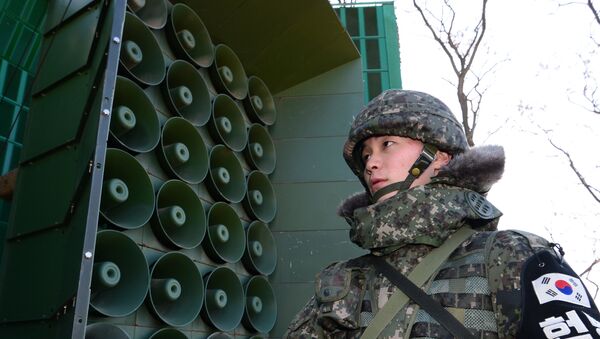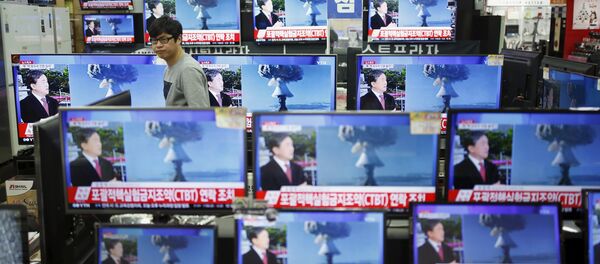"Henceforth, the government will carry on protecting the security of its citizens and will continue its efforts in conveying the truth to North Korean residents," the president told reporters at a press conference.
On January 8, South Korea resumed operating its propaganda broadcasting loudspeakers situated near the demilitarized zone against Pyongyang.
"The most powerful force against a totalitarian system is the truth," Park said.
Relations between North and South Korea escalated since Pyongyang's January 6 hydrogen bomb test. While experts have cast doubt on the test's authenticity, several states have called for new sanctions against the country. The UN Security Council condemned the alleged test, adding it would begin work on further anti-Pyongyang measures in a new resolution.
Japan's defense minister has expressed fears of an aggravation of the standoff between the two countries after the South's resumption of cross-border propaganda broadcasts.
Despite a mutual 2004 agreement to cease propaganda broadcasting, a mid-2015 restart of broadcasting by South Korea led to an escalation of hostilities between the two sides. In August 2015, the two countries exchanged artillery fire, while North Korea's leader Kim Jong Un declared a "quasi-state of war." The situation was later de-escalated on conditions of halting propaganda broadcasts.



